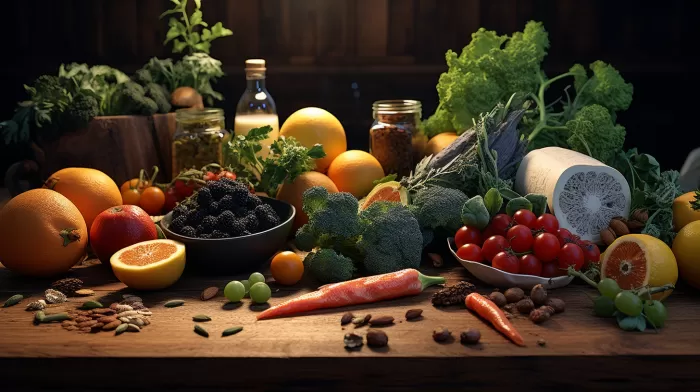Eating foods high in micronutrients and low in sugar can help nourish healthy cell growth and lower inflammation in the body. This kind of diet can provide relief for those suffering from colitis, a condition that causes inflammation and ulcers in the colon. Choosing nutrient-rich, whole foods can ease colitis symptoms, but you should first avoid certain foods that might worsen your condition. Consider eliminating soda, fried foods, beer, red wine, and spicy meats from your diet.
Inflammatory foods that you should avoid include:
- Processed foods with high levels of preservatives, artificial colors, and artificial flavors
- Foods and drinks high in refined sugar, which can fuel bacteria and yeast growth in the gut
- Processed meats such as hot dogs and luncheon meats
- Processed grains like commercial cereals, breads, pasta, crackers, and cookies
To combat inflammation, add these nutritious elements to your diet:
- Omega-3 oils found in fish, flaxseed oil, olives, nuts, and spinach
- Vegetables: dark leafy greens, yellow and orange veggies, peas, green and yellow beans, garlic, leeks, onions, and carrots
- Fruits: berries, apricots, apples, plums, cherries, kiwi, and figs
- Protein from sources like seafood, chicken, turkey, lamb, and eggs, or non-meat sources like nuts, seeds, beans, or protein powder
- Whole grains like brown rice, quinoa, millet, buckwheat, and sprouted grains
Some foods naturally cause inflammation and immune system reactions. Common culprits include refined sugar, wheat, and dairy products, such as cow’s milk protein, corn, and certain fruits and vegetables. These antigenic foods can cause inflammation and tissue damage in the gut.
Raw foods are often recommended because they avoid the inflammatory response caused by cooked foods. However, even cooked food can often be inflammatory. It is essential to find a balance and prepare raw foods to be more easily digested and absorbed by an already inflamed gut, such as through juicing and smoothies.
You can identify which foods are causing inflammation by trying a liquid cleanse for three to five days. After this period, you can reintroduce solid foods one at a time, carefully monitoring any changes in your colitis symptoms to pinpoint problematic foods.
Two key supplements can support a nutrient-rich diet for those with colitis:
- Digestive enzymes: Taking a blend of digestive enzymes that breaks down sugars, proteins, fats, and complex carbohydrates is helpful, especially when beginning a diet high in fiber from raw foods.
- Probiotics: Probiotic supplements can help improve digestion, absorption, and overall gut health. They can form a protective layer of healthy bacteria that improve nutrient absorption, suppress inflammation, and reduce intestinal inflammation by stimulating local immune cells.
Incorporating these dietary changes and supplements can aid overall gut health and alleviate the pain and discomfort related to colitis. To implement these changes successfully, consider working with a raw food or whole food educator for guidance and support.



